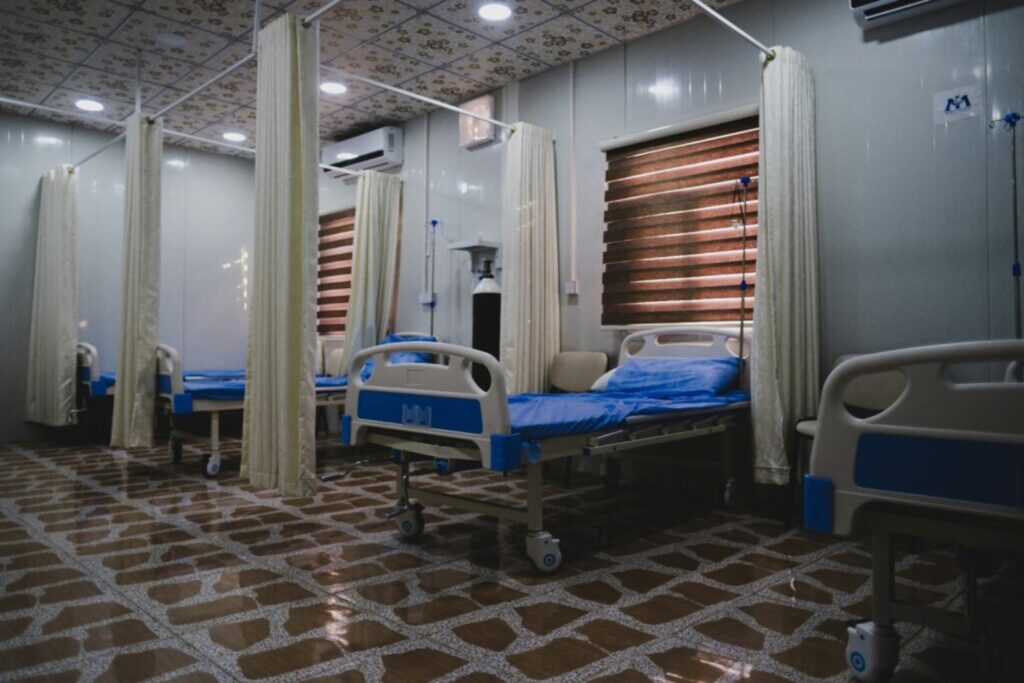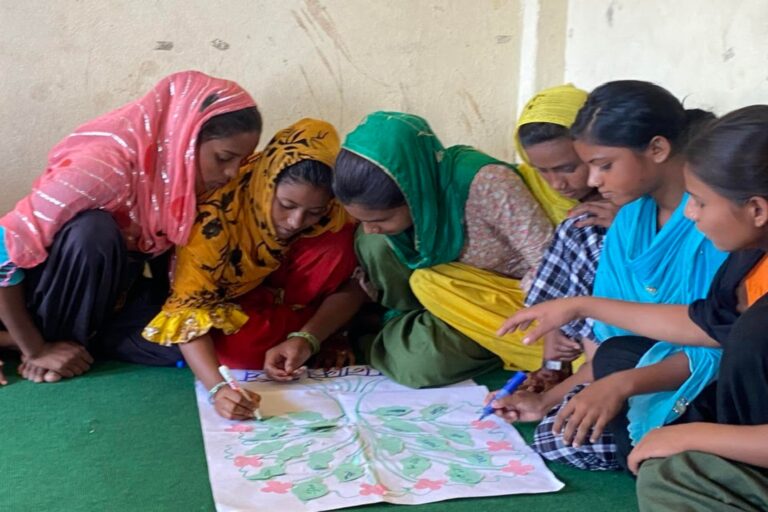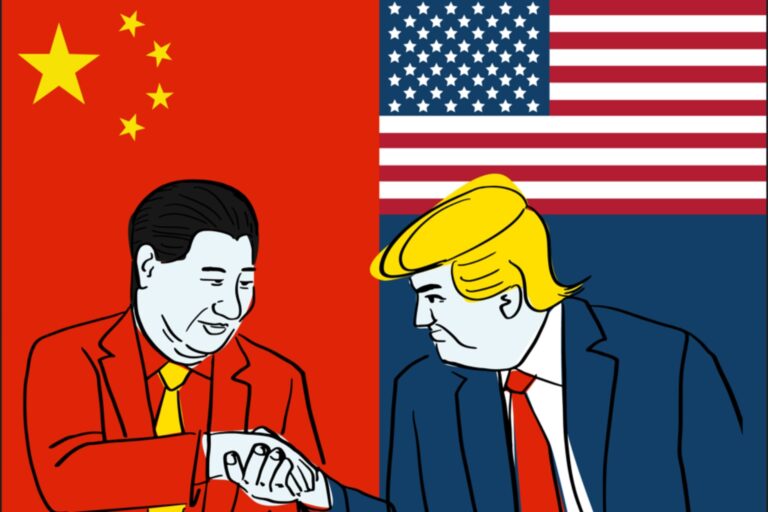Extreme and growing material inequalities are a quintessential concern among scholars, particularly within international relations, global governance, and global public health, and they are increasingly recognized as urgent issues by policymakers and activists alike. Socio-economic inequality not only undermines health outcomes and individual well-being but also perpetuates human rights violations. Inequalities in living standards and perceived social identities are often not unavoidable,5 but rather result from deliberate policy choices and are closely linked to human rights violations and poor senses of well-being. This topic is critical in global discussions as it influences social, political, economic, and public health outcomes. Drawing from multidisciplinary literature on public health and human rights, this article contends that socioeconomic inequalities manifest as health disparities, which together erode human dignity by perpetuating power imbalances and ineffective governance.
Structural Inequalities and Their Implications
Structural inequalities in political, economic, and social systems generate human rights violations and unequal health outcomes, systemically favoring certain groups over others. In oligarchic democracies, policies often benefit the wealthy elite, consequently exacerbating health disparities and undermining public welfare by denying poor people the necessary social services. For example, in the United States, the life expectancy disparity between the richest 1% and the poorest 1% of individuals is approximately 15 years for men and 10 years for women. The magnitude of this difference suggests the profound impact of economic inequality on health outcomes.
The United Nations Sustainable Development Goals, particularly Goal 10, (“Reduce inequality within and among countries”) recognize the inherent connection between health and economic outcomes, emphasizing the need to address inequality in order to improve global health and well-being. Achieving these objectives, nonetheless, requires more than mere policy declarations; it necessitates a substantial reevaluation of the implementation of global health initiatives and the alignment of geopolitical strategies with human rights principles.
Socio-economic inequalities often shape the quality of public health infrastructure, which is usually related to and caused by factors such as income, education, and employment status. The determinants in question are of paramount importance since they determine the conditions in which individuals reside and work, ultimately impacting their health outcomes. Of particular importance is education, which is widely recognized as a primary conduit to socioeconomic advancement, with higher levels of education serving as a strong predictor of both good jobs and high income. Indeed, education is closely intertwined with inequality.14 Notably, remarkable differences in access to high-quality education and income-generating opportunities often result in unequal access to healthcare, nutritious food, and safe living environments, which are all necessary for good health conditions and disease prevention efforts. Individuals in lower socio-economic brackets are more likely to experience poor health due to limited access to healthcare, unhealthy living conditions, and higher stress levels. For example, financially poor individuals are significantly more likely to suffer from chronic conditions such as diabetes and heart disease,15 while the crisis conditions during the COVID-19 pandemic revealed that economic inequality exacerbated health disparities. In many countries, individuals from socially and economically underprivileged groups have experienced increased infection rates and suboptimal health conditions, which preexisting disparities in healthcare access and socioeconomic vulnerabilities reinforce.
Governance and Inequality
Governance structures exert a profound influence on inequality. In several democratic countries marked by high material inequality, economic and public policies frequently advantage the wealthy, adversely affecting public health and social equity. This structural condition further facilitates the unequal distribution of healthcare, education, and essential services, ultimately resulting in health disparities. For instance, despite its status as one of the world’s largest economies, Brazil has substantial portions of its population living in poverty, and they have limited access to quality healthcare. The wealthy elite benefit from private healthcare systems, while the majority of the population relies on an underfunded public health system. In Nepal, highly educated and high-income patients tend to visit private hospitals, which offer higher overall patient satisfaction and quality of services compared to public hospitals. Brazil exhibits a stark disparity in post-intensive care unit (ICU) discharge survival rates between patients in the private healthcare system and those in the public system. In Puerto Rico, women with private health insurance have greater access to healthcare services for endometriosis than those with public insurance, a structural condition that is attributed to disparities in socioeconomic resources that influence healthcare access. Similarly, excessive strain characterizes the public healthcare system in India, and those who possess financial means have greater access to better quality private healthcare services, leading to substantial disparities in health outcomes.
Public health professionals are in a good position to bridge the gap between policy and practice by providing evidence-based insights into the health impacts of governance decisions and advocating for equity-focused policies. This responsibility includes not only addressing short-term health concerns but also challenging the systemic inequalities that contribute to long-term disparities in health outcomes. State and civil society actors must advocate for expanded access to high-quality social and healthcare services and economic opportunities for financially disadvantaged communities. Political empowerment, which constitutes the full actualization of political rights and civil liberties, is positively associated with better health outcomes. This suggests that when inequality limits empowerment, it may also harm health. The right to health is guaranteed in international human rights law, particularly the Universal Declaration of Human Rights and the International Covenant on Economic, Social, and Cultural Rights. The concrete actualization, however, of this right remains very challenging due to systemic inequalities. For example, indigenous populations often experience poorer health conditions when compared to non-indigenous populations. In Australia, Aboriginal and Torres Strait Islander people have a life expectancy that is about ten years shorter than that of non-indigenous Australians. The disparity in life expectancy between Indigenous Australians and non-Indigenous Australians is a pressing public health issue that cannot be overlooked. Cardiovascular system diseases are the leading cause of mortality among Indigenous Australians and a contributing factor in the disparity in life expectancy between these populations. This disparity is entrenched in historical and ongoing social, economic, and political marginalization, illustrating how structural inequalities violate human rights and undermine public health.
Intergovernmental organizations can orchestrate concerted efforts amongst civil society, state, and market actors in addressing global health inequalities by considering entrenched socioeconomic disparities. The United Nations (UN) system, including the World Health Organization (WHO) and other agencies, frames its global health policies, programs, and practices within the context of human rights obligations. For example, the WHO’s Commission on Social Determinants of Health underscored that social injustice facilitates death on a massive scale and urged countries to address the root causes of health inequities. As such, the COVID-19 pandemic is marked by numerous fatalities caused by inadequacies of global health governance and the self-interested actions of states and pharmaceutical companies. In response, international non-governmental organizations (INGOs) have advocated for global health justice, employing various frameworks such as human rights, scientific evidence, and security, which reflect their mandates and historical identities. This advocacy underscores the urgent need for a more equitable and just approach to global health governance.
Conclusions
Tackling human rights, inequality, and public health issues requires a comprehensive strategy. Governments and civil society actors must investigate the effects of reforms on income and wealth distribution and bolster welfare systems for vulnerable populations. Universal access to high-quality healthcare requires increased funding for facilities, extensive training for healthcare professionals, and equitable resource distribution. Universal healthcare access is vital for reducing health disparities and enhancing well-being. Additionally, policies must address social determinants like income, education, and housing. A multi-sectoral collaboration, involving health, education, housing, and employment, is crucial to fostering environments that improve health outcomes. Holistically addressing these determinants can significantly impact and benefit public health.
Reforming governance structures to promote equity and justice is essential.3,33 Enhancing transparency, accountability, and public participation in policymaking addresses marginalized and vulnerable populations’ needs. Inclusive governance ensures policies benefit all citizens, reducing systemic inequalities. Health policies and programs must follow human rights principles like inclusivity, non-discrimination, and the maintenance of individuals’ dignity and well-being. Aligning health initiatives with human rights fosters equity and justice, ensuring fair and respectful health systems. This alignment addresses immediate health needs and supports long-term health improvements by tackling inequality’s root causes. Global governance organizations, including relevant UN agencies, assist countries in addressing health disparities and promoting human rights through technical assistance, funding, and knowledge-sharing. International cooperation disseminates best practices and fosters a global commitment to reducing health inequalities and upholding human rights.
Integrating human rights principles into healthcare policies and governance requires addressing the root causes of inequality, and fostering a more equitable and healthier world. Scholars and global health activists must advocate for fairness, justice, and human rights in these policies and practices. This approach can enhance global health outcomes and ensure human dignity and well-being for everyone, irrespective of their circumstances.
References
1 Oxfam. Survival of the Richest: How we must tax the superrich now to fight inequality. 2023; published online Jan 1. https://www.oxfam.org/en/research/survival-richest (accessed April 5, 2023).
2 Moellendorf D. Global inequality and injustice. Journal of International Development 2009; 21: 1125–36.
3 Regilme S. Bringing the Global Political Economy Back In: Neoliberalism, Globalization, and Democratic Consolidation. International Studies Perspectives 2014; 15: 277–96.
4 Regilme SS. Constitutional Order in Oligarchic Democracies: Neoliberal Rights versus Socio-Economic Rights. Law, Culture and the Humanities 2023; 19: 126–43.
5 MacNaughton G. Economic inequality and human rights impact assessments of economic reforms. Int J Hum Rights 2020; 24: 1311–32.
6 Yamin AE. Struggles for Human Rights in Health in an Age of Neoliberalism: From Civil Disobedience to Epistemic Disobedience. J Hum Rights Pract 2019; 11: 357–72.
7 Gostin LO, Friedman EA, Hossain S, et al. Human rights and the COVID-19 pandemic: a retrospective and prospective analysis. Lancet 2023; 401: 154–68.
8 Regilme SS. Crisis politics of dehumanisation during COVID-19: A framework for mapping the social processes through which dehumanisation undermines human dignity. The British Journal of Politics and International Relations 2023; 25: 555–73.
9 Forman L. What do human rights bring to discussions of power and politics in health policy and systems? Glob Public Health 2017; 14: 1–14.
10 Ponnusamy S, Hakeem MA. Ethnic inequality and public health. Heal Econ 2024; 33: 41–58.
11 Chetty R, Stepner M, Abraham S, et al. The Association Between Income and Life Expectancy in the United States, 2001-2014. JAMA 2016; 315: 1750.
12 United Nations. Transforming our world: the 2030 Agenda for Sustainable Development. United Nations. 2015; published online Sept 25. https://sdgs.un.org/2030agenda (accessed July 25, 2024).
13 Hirschman C, Lee JC, Tienda M. Race and Ethnic Inequality in Educational Attainment in the United States. In: Rutter M, ed. Ethnicity and Causal Mechanisms. Cambridge: Cambridge University Press, 2005: 107–38.
14 Budría S. The Socioeconomic determinants of economic inequality. Evidence from Portugal. Rev Int Sociol 2009; 68: 81–124.
15 Braveman PA, Cubbin C, Egerter S, Williams DR, Pamuk E. Socioeconomic Disparities in Health in the United States: What the Patterns Tell Us. Am J Public Heal 2011; 100: S186–96.
16 Regilme S. International relations in public health: the Pentagon’s anti-vax campaign during COVID-19 pandemic. J Public Heal 2024; : fdae139.
17 Soulé F. Addressing vaccine inequity: African agency and access to COVID-19 vaccines. China Int Strategy Rev 2022; 4: 156–65.
18 Moyer JD, Verhagen W, Mapes B, et al. How many people is the COVID-19 pandemic pushing into poverty? A long-term forecast to 2050 with alternative scenarios. PLoS ONE 2022; 17: e0270846.
19 Landrigan PJ, Ferrer L, Keenan J. COVID-19 and Health Disparities: Structural Evil Unmasked. Ann Glob Heal 2021; 87: 34.
20 Sah MK, Sangroula RK, Kumar SA. Comparative analysis of performance of private and public healthcare systems in Nepal. Int J Community Med Public Heal 2020; 7: 2462–8.
21 Neto FLD, Rosa RG, Duso BA, et al. Public versus Private Healthcare Systems following Discharge from the ICU: A Propensity Score-Matched Comparison of Outcomes. BioMed Res Int 2015; 2016: 6568531.
22 Fourquet J, Zavala DE, Missmer S, Bracero N, Romaguera J, Flores I. Disparities in healthcare services in women with endometriosis with public vs private health insurance. Am J Obstet Gynecol 2019; 221: 623.e1-623.e11.
23 Kasthuri A. Challenges to Healthcare in India – The Five A’s. Indian J Community Med : Off Publ Indian Assoc Prev Soc Med 2018; 43: 141–3.
24 Hoyer D, Dee E, O’Leary MS, et al. How Do We Define and Measure Health Equity? The State of Current Practice and Tools to Advance Health Equity. J Public Heal Manag Pr 2022; 28: 570–7.
25 Garces-Ozanne A, Kalu EI, Audas R. The Effect of Empowerment and Self-Determination on Health Outcomes. Heal Educ Behav 2016; 43: 623–31.
26 Brown A, O’Shea RL, Mott K, et al. Essential Service Standards for Equitable National Cardiovascular Care for Aboriginal and Torres Strait Islander People. Hear, Lung Circ 2015; 24: 126–41.
27 Noor T, Ahmad T, Afrin S. Role of Social Determinants in Reshaping the Public Health Policies: A Comprehensive Study. Int J Sci Healthc Res 2024; 9: 263–70.
28 Meier BM, Ayala AS. The Pan American Health Organization and the Mainstreaming of Human Rights in Regional Health Governance. J Law, Med Ethics 2014; 42: 356–74.
29 Meier BM, Onzivu W. The evolution of human rights in World Health Organization policy and the future of human rights through global health governance. Public Heal 2014; 128: 179–87.
30 Pas RV de, Hill PS, Hammonds R, et al. Global health governance in the sustainable development goals: Is it grounded in the right to health? Glob Chall 2017; 1: 47–60.
31 Chapman AR. The social determinants of health, health equity, and human rights. Heal Hum rights 2010; 12: 17–30.
32 Noh J-E. The Fight for Global Health Justice: The Advocacy of International Humanitarian and Development NGOs During the COVID-19 Pandemic. Volunt: Int J Volunt Nonprofit Organ 2024;: 1–15.
33 Regilme SS. Human Dignity in International Relations. Oxford Research Encyclopedia in International Studies. 2022; published online Sept 15. https://doi.org/10.1093/acrefore/9780190846626.013.689.




